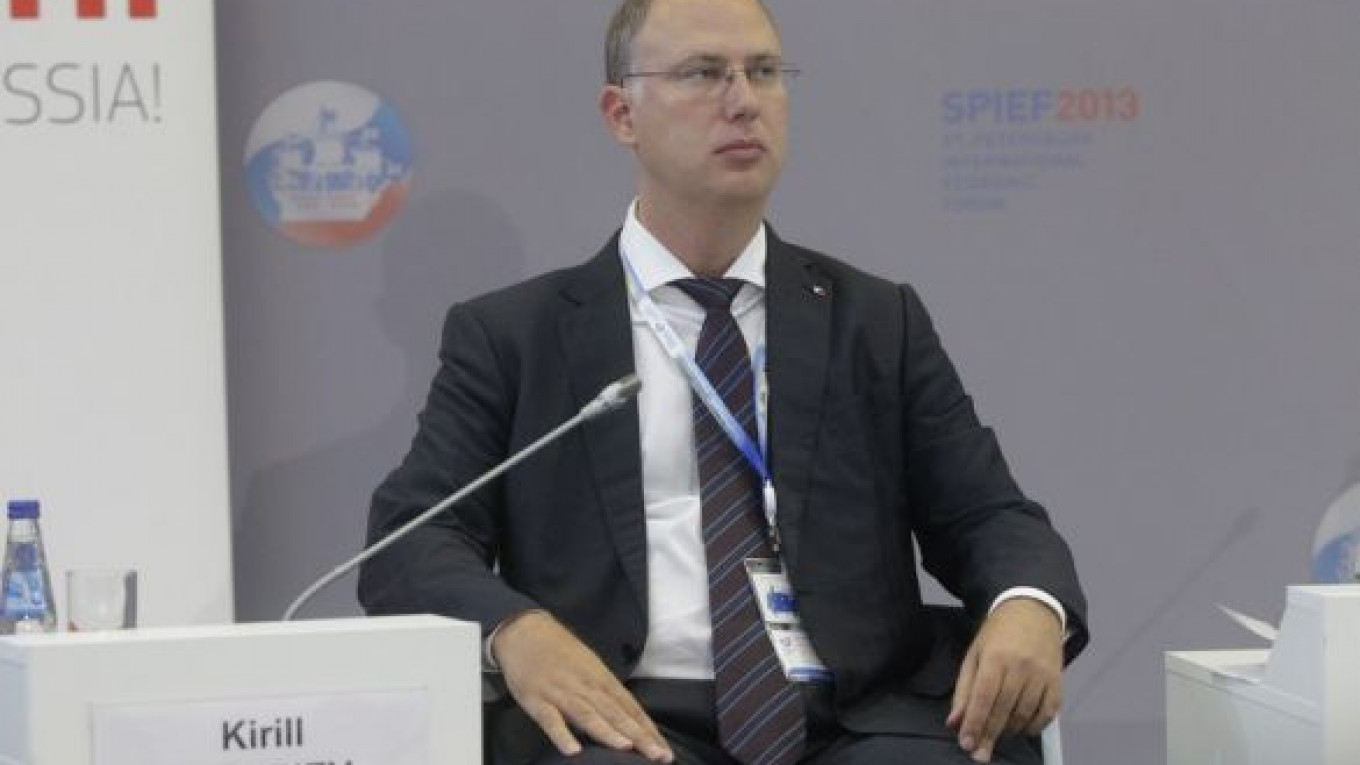The Russian Direct Investment Fund, the European Bank for Reconstruction and Development and the CapMan Russia II fund have signed an agreement to invest $100 million in Maykor — a Russian IT outsourcing service provider, with a view to list the company on the Moscow Exchange within the next three years, RDIF's Director Sean Glodek said Monday.
The RDIF, Russia's state owned investment fund, will commit $50 million, and EBRD and CapMan will invest $25 million each over the next 12 months.
RDIF has selected a market leader in the Russian IT equipment outsourcing and maintenance, said Glodek. Aimed at stimulating organic growth, the injection of funds will also allow the company to expand through acquisitions, while "longer term, as Maykor develops, we expect to attract more quality co-investors on top of the initial $100 million," he added.
In return, the consortium will receive a "significant equity position in the company, with corresponding voting rights and representation on the board of directors," Glodek added.
Sberbank CIB estimated Maykor's market value at from $300 to $400 million, excluding debt. The investment would therefore give the consortium about a 25 percent stake, Vedomosti reported.
In 2012, Maykor's income from IT services exceeded 8 billion rubles ($243 million), nearly double the 4.3 billion rubles it earned in 2011, CNews.ru reported.
The Russian software outsourcing industry was worth $2 billion in 2012, according to Russoft. The market grew by 15 percent in 2012 and is expected to grow between 15 and 17 percent in 2013, according to government figures.
Reportedly, one of the goals of the investment is to prepare the company for an IPO.
In Maykor's, case, a stock exchange listing is an exist strategy, Glodek said.
"In every investment we look to define an exit strategy, which for Maykor could include listing on the Moscow Exchange, among other options. Typically for RDIF and our co-investors, the plan would be to stay with the investment for a number of years to show expansion in core business performance and profitability … which are key drivers of our expected return," Glodek said.
"To help Maykor, CapMan will leverage its prior successful experience investing and growing similar IT outsourcing companies in Northern Europe," Glodek said.
In 2004 CapMan, a Finnish private equity fund, received a ten-fold return in just three years from an investment in Eltel, a Swedish company engaged in similar activities to Maykor, Vedomosti reported.
"What we have here is a classic deal. Co-investing with such an experienced organization as CapMan provides reassurance to RDIF that the project will develop in the right direction," said Olga Uskova, president of Cognitive Technologies.
The head of a multi billion dollar Russian IT company, who asked not to be identified because of the possible impact on his business, said he was concerned that his state owned customers could be encouraged to switch to Maykor after such an investment by RDIF. "And overall there are fewer and fewer non-state owned customers on the market," he added.
In July 2012, IBS Group sold its subsidiary Expertek to Maykor in return for a 5 percent share in the company, said Yevgeny Kutilov, an IBS Group spokesman. Maykor's market share in "functional outsourcing" is more than 50 percent, according to research by IDC.
Another industry player said Maykor is a "serious player" whose base business was around IT services but will now be targeting a broader range of products and services for outsourcing mainly to the public sector.
In-house IT service providers at government companies are also a roadblock for private companies, the anonymous executive said, since they are favored suppliers. Moreover, they retard the development of the sector due to their lack of global experience and do not add to the "capitalization of competency" on the IT services market.
Other analysts said this deal was too small to have a dramatic effect on the market.
Timur Nigmatullin, an analyst from Investcafe, said the $20 billion IT market is "very competitive, and investments on their own are not enough to give anyone an absolute competitive advantage."
Contact the author at g.moukine@imedia.ru
A Message from The Moscow Times:
Dear readers,
We are facing unprecedented challenges. Russia's Prosecutor General's Office has designated The Moscow Times as an "undesirable" organization, criminalizing our work and putting our staff at risk of prosecution. This follows our earlier unjust labeling as a "foreign agent."
These actions are direct attempts to silence independent journalism in Russia. The authorities claim our work "discredits the decisions of the Russian leadership." We see things differently: we strive to provide accurate, unbiased reporting on Russia.
We, the journalists of The Moscow Times, refuse to be silenced. But to continue our work, we need your help.
Your support, no matter how small, makes a world of difference. If you can, please support us monthly starting from just $2. It's quick to set up, and every contribution makes a significant impact.
By supporting The Moscow Times, you're defending open, independent journalism in the face of repression. Thank you for standing with us.
Remind me later.


